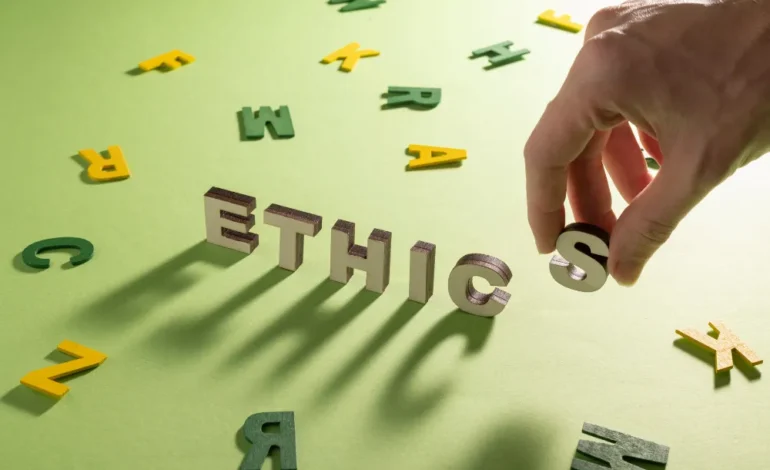Have you ever questioned who guarantees that every nation in Europe is paying fair wages? Alternatively who monitors debt, budgets, and financial stability throughout the EU?
The Economic and Financial Committee serves Europe in the same way that a competent financial planner keeps a family within its means. But it is handling 27 separate countries rather than one home.
Let’s start with why the EFC is crucial, then explore how it maintains the EU’s economy functioning smoothly. This manual is written in common English; there is no sophisticated jargon—just clarity.
The Economic and Financial Committee is what?
Often shortened to EFC, the EFC is an indispensable consultative body of the European Union. It helps the EU to control financial rules, economic policy, and crisis reaction.
Its main obligations include in:
Monitoring member state financial and economic conditions
guiding on financial and budgetary issues
assisting with major EU conference preparation, particularly with relation to ECOFIN
Consider the Economic and Financial Committee as the backstage crew of a major theater show; while the public views the performers—finance ministers—it is the committee that ensures the timing, lighting, and script are correct. you can also check how Navy Federal Credit Union Services work.
Why does the Committee exist?
Allow us to draw a basic real-life parallel.
Picture a bunch of pals planning a trip. Everybody has distinct debt, spending patterns, and income level. Ignorance of good planning could lead to overspending or legal problems. One friend then steps in to monitor group spending and keeps everyone on budget.
Under this situation, the Economic and Financial Committee serves as that conscientious friend.
Europe is made up of various nations with varying economies. One nation falling off course might affect others as well. The EFC exists therefore to guarantee financial stability, balance, and coordination.
Without the EFC, events including financial crises, currency volatility, or recession might spread more quickly between nations influencing employment, investments, and daily prices.
Methodologically, how does the Economic and Financial Committee operate?
Here is a thorough, exact manual on how this strong committee runs behind-the-scenes:
1. Economic Surveillance, sometimes known as Close Watch
The EFC continuously assesses every EU nation’s economic situation. It investigates:
Change in GDP
Degree of inflation
Employment percentages
Public debt and shortcomings
generally stable finances
Part of economic monitoring is this technique.
Should something seem strange—such as a nation overspending—the committee issues early warnings and recommendations. These suggestions assist governments prevent more significant issues down road.
👀 For example, nations that disregarded early warning during the financial crisis of 2008 found themselves in major hot water. EFC currently serves as a preventative agent to prevent such repetitious behavior.
2. Policy Coordination (International Cooperation) Teams
Every EU nation forward their budgetary proposals to the committee. This is carried out under the European Semester structure, which guarantees national budgets complementing EU-wide objectives.
The EFC is:
Examines these strategies.
identifies hazards or imbalances.
guarantees nations are neither undertaxing or overspending.
This cooperation helps prevent unpleasant shocks, such as financial mistakes made by one nation influencing another.
Consider this as house budget shared by roommates. Every one suffers if one overspends. The organization thus lays guidelines to be fair and balanced.
3. Crisis Management—Emergency Reaction Mode
The EFC acts when things go wrong—that is, during a financial crisis, bank failure, or economic slump.
It:
gathers material rapidly.
advises quick financial decisions in an emergency.
organizes an EU reaction in concert.
works with other agencies as well as the European Central Bank.
For instance, the EFC was quite important in guiding on large-scale financial assistance programs and preventing the collapse of the economy during the COVID-19 epidemic.
😡 Consider the EFC as Europe’s emergency reaction squad guiding her through financial storms.
4. getting ready for The Main Stage, ECOFIN
EU finance ministers convene in the Economic and Financial Affairs Council (ECOFIN) to make major decisions.
But the EFC gets ready before that by:
It writes policy recommendations and reports.
Review the agenda items.
guarantees ministers’ readiness for negotiations and their briefings
This is an absolutely vital stage. It’s like getting ready notes and statistics before a significant board meeting. Discussions would be scattered and less effective without this preparation.
5. Long-Term Vision: Looking Ahead
The Economic and Financial Committee watches the future in addition to the now.
It enables the EU to get ready for approaching obstacles including:
The digital economy
Green financing in view of climate change
Changes in world economy
Energy prices
Changes in demographic patterns
These realizations help to define long-term economic policies including policy changes and sustainable investment schemes.
📈 In this capacity, the EFC serves as Europe’s GPS guiding her away from misguided paths years in advance.
Who Are the Committee Members Made From?
Senior officials from among these comprise the EFC:
Every Member State of the European Union
Commission Europe
The European Central Bank, or ECB
The Secretariat of The Council
Usually from national finance ministries or central banks, these analysts are Usually meeting once a month, the committee may call meetings weekly or even daily in case of need.
Why Should You Give It Any Thought?
Assume for the moment you run a little bakery in France. You might not give EU politics much thought, but it immediately affects you if inflation rises or loan rate increases resulting from financial instability in another EU nation.
Preventing such kinds of disturbances depends much on the EFC.
Monitoring the state of every EU economy allows the EFC:
preserves the euro’s stability.
promotes employment progress.
helps keep low interest rates.
stops the dissemination of financial shocks.
The Economic and Financial Committee is thus silently working in your advantage even though you have never heard of it before.
FAQs
Does the Economic and Financial Committee affect non-eurozone countries?
Yes, even EU countries not using the euro participate in EFC meetings. The committee monitors the economic policies of all EU members to ensure coordination and financial stability across the entire union.
How often does the Economic and Financial Committee meet?
The EFC usually meets once or twice a month, but it can meet more frequently during times of economic uncertainty or crisis to provide timely advice and coordination.
Can the public access EFC recommendations or reports?
While most EFC discussions are confidential, summaries and reports are often shared through the European Commission or EU Council websites to keep the public informed of key decisions and findings.
Who leads the Economic and Financial Committee?
The EFC is chaired by a President elected from among its members, usually for a two-year term. This person helps guide discussions and represents the committee in broader EU-level meetings.
In conclusion
Though it operates in the shadows, the Economic and Financial Committee has an influence felt all throughout Europe. From keeping financial stability to planning for the future, this group guarantees that nations advance together—rather than dragging in opposing directions.
Whether you are a curious citizen, company owner, or student, knowing how the Economic and Financial Committee operates can help you to better appreciate how the state of the economy influences your daily life.







